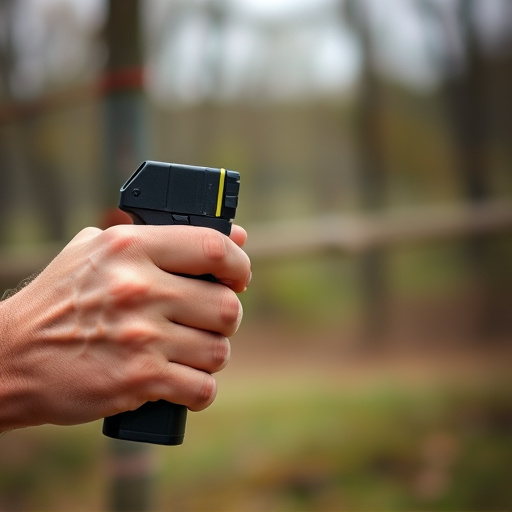In case of pepper spray exposure, swiftly move to safety, flush affected areas with water for 15 minutes, remove contaminated clothing and accessories, and seek fresh air. For breathing difficulties or persistent symptoms, call emergency services. Prevent attacks by staying alert, wearing protective gear, and avoiding known trouble spots. Prioritize well-being through immediate care and medical consultation if needed.
“Personal safety is paramount, especially in today’s unpredictable world. For individuals seeking protection against unexpected threats, understanding and preparing for pepper spray exposure is vital. This comprehensive guide delves into the essential aspects of immediate care for pepper spray exposure, offering effective steps to mitigate irritation and providing preventive measures to safeguard yourself from attacks. Armed with knowledge, you can stay one step ahead.”
- Understanding Immediate Care for Pepper Spray Exposure
- Effective Steps to Mitigate and Treat Pepper Spray Irritation
- Preventive Measures: Safeguarding Yourself from Pepper Spray Attacks
Understanding Immediate Care for Pepper Spray Exposure
When exposed to pepper spray, immediate care is crucial to mitigating its effects. If you or someone else comes into contact with the irritant, the first step is to move to a safe, open area away from the source of the spray. This rapid evacuation helps prevent further exposure and allows for easier treatment.
Next, flush the affected area liberally with water for at least 15 minutes. This includes washing eyes, skin, and any clothing that may have absorbed the spray. Remove any contaminated items like glasses or contact lenses, and continue flushing until all residual pepper spray is washed away. Seeking medical attention is advisable, especially if symptoms persist or severe reactions occur.
Effective Steps to Mitigate and Treat Pepper Spray Irritation
In the event of immediate care for pepper spray, the first step is to move to a safe location and remove any clothing or accessories that may have come into contact with the spray. This includes shoes and outer garments, as the irritant can remain on these surfaces and continue to cause discomfort. Ensure you wash your face, eyes, and skin with plenty of water for at least 15 minutes, gently scrubbing to help dilute and flush out the capsaicin oil responsible for the irritation.
For breathing difficulties, seek fresh air immediately. If symptoms persist or are severe, call emergency services. To alleviate pain and discomfort in other areas, consider using a mild soap and warm water solution for washing affected parts of the body. Applying a cold compress can also help reduce swelling and provide some relief from stinging sensations. Remember, prompt action is key to mitigating pepper spray irritation, so act swiftly if you or someone else experiences exposure to this chemical irritant.
Preventive Measures: Safeguarding Yourself from Pepper Spray Attacks
Preventing a pepper spray attack is paramount for your safety and well-being. Always be aware of your surroundings, especially in unfamiliar or potentially dangerous areas. Staying alert and observing any suspicious behavior can help you anticipate potential threats. Wearing protective gear such as goggles or a face mask can significantly reduce the impact of pepper spray if exposed. Keep a safe distance from known trouble spots and avoid walking alone at night in poorly lit or secluded places.
Should you find yourself facing a pepper spray attack, immediate care is crucial. Remove any clothing or materials that come into contact with your skin as quickly as possible to prevent prolonged exposure. Seek fresh air immediately; open windows or use a portable fan to aid ventilation. Rinse affected areas with mild soap and water to dilute the spray’s residue. If needed, seek medical attention promptly, especially if symptoms persist or worsen.
Personal safety is paramount, especially in situations involving inflammatory pepper spray. By understanding immediate care procedures, knowing effective treatment steps, and taking preventive measures, individuals can mitigate risks and protect themselves. Remember, swift action and the right knowledge are key to managing exposure and ensuring your well-being. In light of these insights, it’s essential to stay prepared and informed in today’s diverse world.
